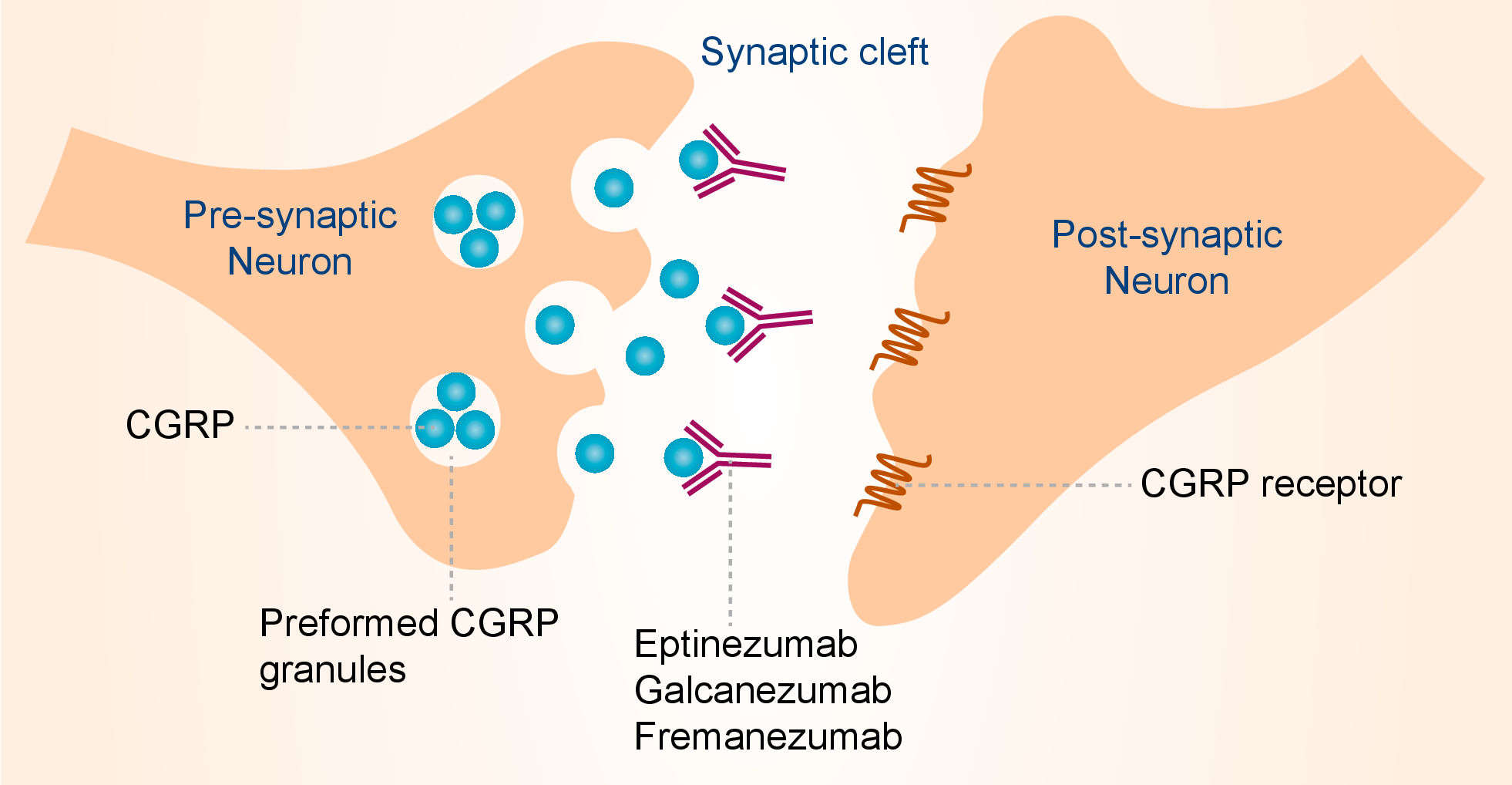Eptinezumab Overview
Introduction of Eptinezumab
Eptinezumab (formerly ALD403) is a fully humanized IgG1 antibody manufactured using yeast (Pichia pastoris). The agent is currently in clinical trials for preventing migraine attacks. Eptinezumab has been specifically designed to bind to both alpha and beta forms of the human calcitonin gene-related peptide (CGRP). It is in Phase III clinical trials as of August 2017.
Mechanism of Action of Eptinezumab
Migraine headache is associated with activation of trigeminal durovascular nociceptive afferents and release of CGRP. Eptinezumab binds to both α and β isoforms of CGRP and inhibits the interaction between CGRP and its’ receptor, thereby shows efficacy in the treatment of migraine. CGRP is a 37-amino acid neuropeptide, a member of a family of peptides that includes amylin, adrenomedullin, and calcitonin, which actively operate in different parts of the organism and are primarily localized in C unmyelinated sensory fibers. There are 2 isoforms of CGRP, α-CGRP and β-CGRP, which are encoded by alternate splicing of the calcitonin coding gene. These isoforms differ by 3 amino acids and coexist in most neurons. In particular, α-CGRP is mainly expressed in the central nervous system, whereas β-CGRP is predominant in presynaptic terminals of enteric sensory neuronal cells. The 2 isoforms are both complete agonists of the CGRP receptor, which is a membrane heterodimer composed of a 461-amino acid protein with 7 transmembrane domains (calcitonin receptor-like receptor) and a single transmembrane peptide (receptor activity-modifying protein 1). An additional third protein is required to form an optimally functional CGRP receptor, a hydrophilic membrane-associated protein (receptor component protein) able to primarily activate adenylate cyclase and protein kinase A, resulting in the phosphorylation of multiple downstream targets. CGRP is the most potent vasodilator currently known. It mediates a final common pathway in smooth muscle cells, achieving a decrease in intracellular concentration of free calcium ion concentration and subsequent cell relaxation. Moreover, studies have shown that it has a facilitatory role in nociceptive transmission together with other neuro mediators, such as substance P and bradykinin. This role is especially apparent when it is released from the trigeminal ganglia neurons that innervate the cranial vessels, one of the major sites of neuropeptide synthesis. In recent decades, knowledge of the role of CGRP and its receptor in pain transmission has expanded considerably, mainly in the migraine pathophysiological model. It is now assumed that neuronal dysfunction of the central sensory system generates migraine attacks in genetically susceptible individuals. The trigeminal system is clearly involved, and a large quantity of neuropeptides, such as CGRP, are released from terminal nerve endings in the meninges and face. Consequently, the peripheral activities of CGRP and other peptides released, such as substance P (often colocalized in Aδ and C sensory fibers), play a major role in the expression and maintenance of head pain and possibly in other migraine symptoms. The most obvious evidence supporting the role of CGRP in migraine pain showed that increased plasma levels of CGRP were associated with painful syndromes such as migraine and cluster headache. Once the concentration was normalized after the attack ended, CGRP infusion could induce migraine attacks, and triptans were able to normalize the rise in plasma levels during a migraine attack.
 Fig.1 Mechanism of action of eptinezumab
Fig.1 Mechanism of action of eptinezumab
Clinical Projects of Eptinezumab *
| NCT ID | Status | Conditions | Lead Sponsor | Update Time |
| NCT02985398 | Active, not recruiting | Migraine Disorder | Alder Biopharmaceuticals, Inc. | December 7, 2016 |
| NCT02974153 | Active, not recruiting | Migraine Disorders | Alder Biopharmaceuticals, Inc. | November 28, 2016 |
* The table was excerpted from the following website
https://clinicaltrials.gov/ct2/results?cond=&term=Eptinezumab
For research use only. Not intended for any clinical use.
This site is protected by reCAPTCHA and the Google Privacy Policy and Terms of Service apply.



